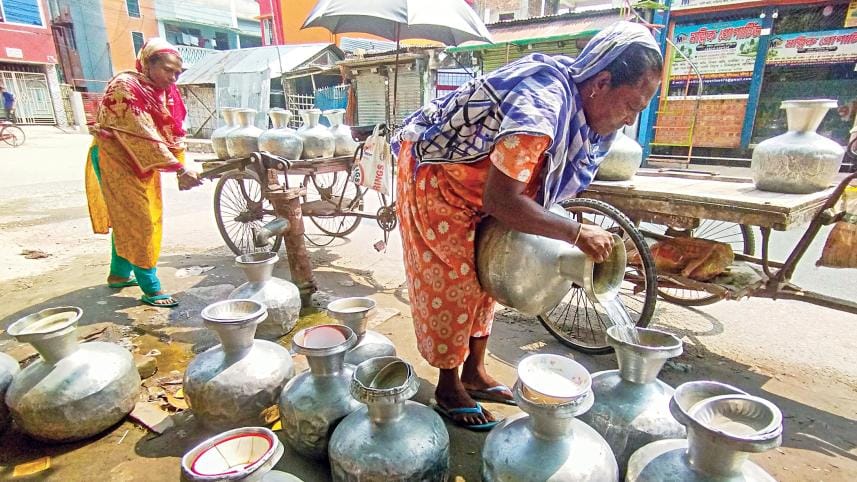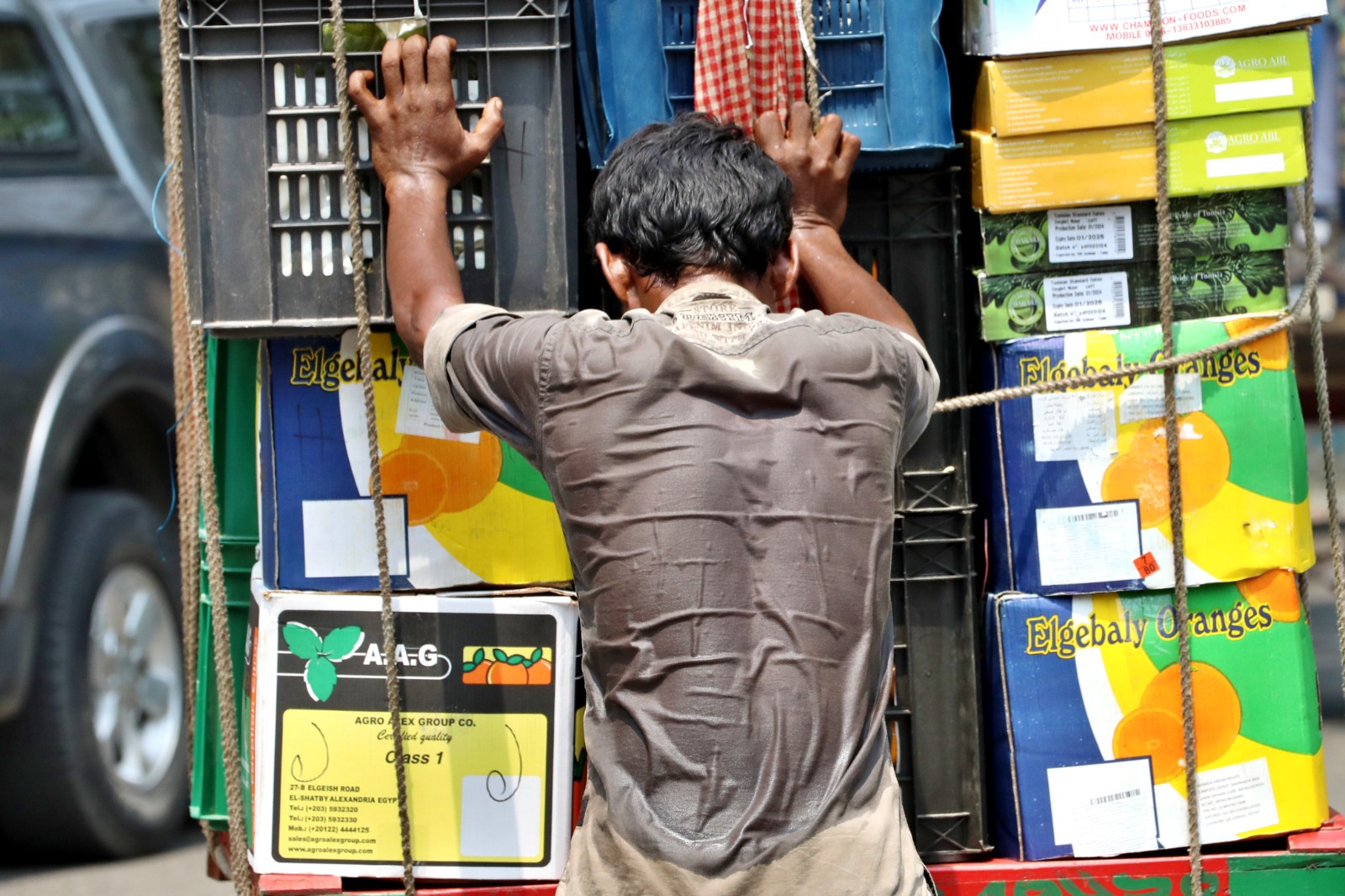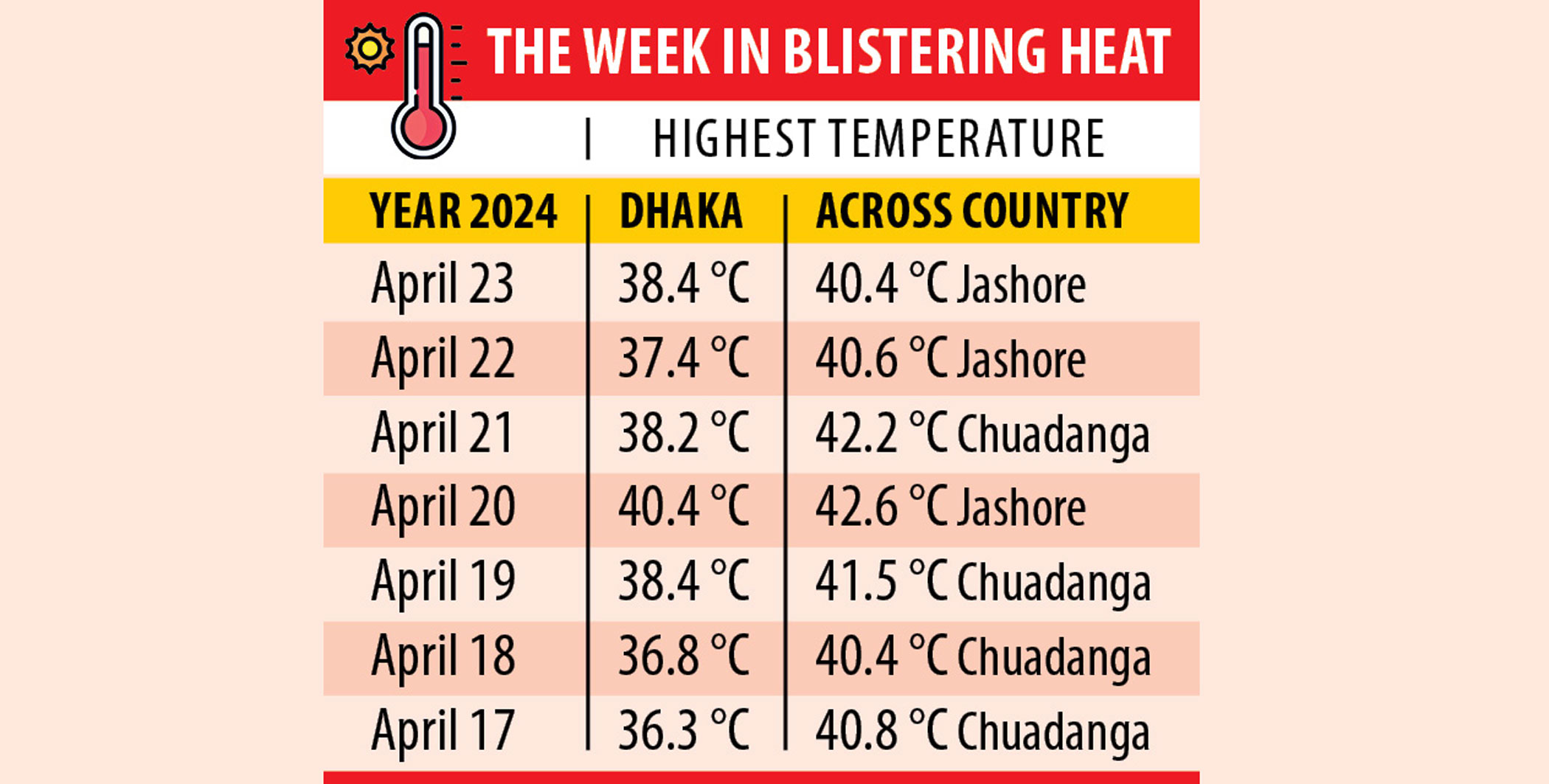Ongoing heatwave: Water crisis grips Khulna

The water crisis in Khulna city has deepened amidst the relentless heatwave, due to plummeting groundwater levels and the inability of the Water Supply and Sewerage Authority to meet the residents' water needs adequately.
Around 500 families residing near Sonadanga Solar Park and Harijan Pally areas in ward-17 of the Khulna City Corporation are facing the worst of this crisis.
Kabita Begum, a mother of three, said the public tube-wells in her locality have stopped producing any water for a week now.
"I've had to trek to a distant pump to fetch water. Additionally, I must purchase two jars of water daily at Tk 80 each to fulfill my family's needs," she said.
Similar distress echoed across Mirzapur Road, Baitipara, Ahsan Ahmed Road, Tutpara, Basupara, West Baniakhamar, Babu Khan Road, Gobarchaka, Basupara, Farajipara, and Daulatpur areas.
Saifullah Mamun from Karimnagar, under ward 17, highlighted the recurrent water crises plaguing the region for the past six years, particularly during the summer.
According to Wasa sources, approximately 90 percent of the city areas cannot utilise Wasa water for drinking purposes, so they rely on tube-wells and submersible pumps.
However, as groundwater plummets during summer, many of these tube-wells get dysfunctional, leaving its users with no pure drinking water.
Meanwhile, due to its costly nature, many residents cannot afford to set up a submersible pump to begin with.
In 2016, Khulna Wasa initiated a Tk 2,558 crore project to address the water crisis. The project involved the collection, purification, and distribution of water from the Madhumati river through a 650km pipeline network.
Kamal Uddin Ahmed, deputy managing director of Khulna Wasa, said they currently supply five crore litres of water per day against a demand of 24 crore litres.
He said out of 70,450 households, Wasa fails to provide supply in approximately 28,650.
Md Abdullah, managing director of Khulna Wasa, said, "The Madhumati river water becomes 100 percent pure and potable after treatment... However, immediate detection of leaks in the pipeline is challenging."
Dilip Kumar Datta, a former professor of environmental science at Khulna University, said people are taking out groundwater at an alarmingly fast rate, meaning it's not filling up again anytime soon.
He said hand-held tube-wells cease functioning when the water level drops to 30-32 feet.
The experts and Wasa representatives urged residents to reserve groundwater solely for drinking purposes and utilise surface water for other needs.
They also urged the city residents to boil water before consumption and cooking.




 For all latest news, follow The Daily Star's Google News channel.
For all latest news, follow The Daily Star's Google News channel. 

Comments